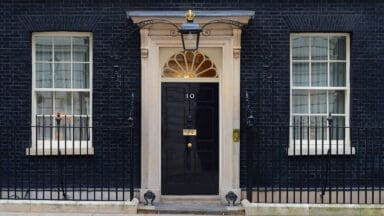
In her Spring Statement the Chancellor, Rachel Reeves outlined a range of spending cuts to offset stagnating growth and to balance the budget. To the relief of businesses, there will be no further tax rises, though as of April they face the instalment of the “Triple Whammy” of taxes, laid out in the Autumn Budget.
Warning of a risky outlook, the OBR issued a statement today, saying: “Against a more challenging and uncertain outlook than in autumn, we have halved our forecast for economic growth this year from 2% to 1% and lowered the forecast path for the level of productivity. Before accounting for policy, higher debt interest costs and other forecast changes left the current budget in deficit by £4 billion in 2029-30. Policy changes, including welfare reforms and day-to-day departmental spending reductions, restore it to the £10 billion surplus the Chancellor had in October. This remains a small margin against the risk of further shocks to interest rates, productivity, or global trade.”
Key points from the Spring Statement:
- The Chancellor confirmed that there would be no further tax rises today but claimed that she will raise an extra billion pounds by cracking down harder on tax evasion.
- The £9.9 billion fiscal buffer against this target set in October’s Budget has been wiped out, which the blamed on higher borrowing costs
- The Office for Budget Responsibility (OBR) downgraded predicted growth for this year from 2% to 1%. The forecast growth is estimated to reach 1.9% in 2026, 1.8% in 2027, 1.7% in 2028, and 1.8% in 2029.
- The budget will move from a deficit of £36.1 billion in 2025/26 and £13.4 billion in 2026/27, to a surplus of £6 billon in 2027/28, £7.1 billion in 2028/29 and £9.9 billion in 2029/30
- Public day-to-day spending is down by £6.1 billion. The cuts in the welfare budget will save £4.8 billion, estimates the OBR. Approximately 10,000 civil service jobs are expected to be cut with civil service costs reduced by 15%, saving £2.2 billion by the end of the decade.
- Reeves says the health element of universal credit will be cut by 50% and frozen for new claimants
- Inflation forecast to average 3.2% this year is up from 2.6% previously forecast – falling back to 2.1% in 2026 Inflation expected to hit the 2% government target from 2027.
- Thanks to recent planning reforms, the house building estimated to hit 40-year-high. The OBR indicated that the planning system changes will boost housebuilding by 170,000 over five years, enabling 0.2% growth.
- £600 million worth of investment will be dedicated to train up to 60,000 more skilled construction workers to build the new homes.
- Defence spending, which was due to rise £2.9 billion next year is to increase by a further £2.2 billion.
- £3.25 billion of investment brought forward for a new “transformation fund” to bring down the cost of running government by making public services more efficient.
Industry response
A dejected response to today’s Spring Statement, Jennifer Pheasey, Director of Public Affairs, Horticultural Trades Association (HTA), said:
“The Chancellor’s Spring Statement offers little relief for horticulture businesses and has failed to put a spring in the step of our members across the sector. Facing fragile consumer confidence and rising costs on all fronts, from inheritance tax to border chaos to plant health fees, this is not an agenda for growth for the environmental horticulture sector.
“Confidence and certainty are key, but with imminent new costs this April, such as National Insurance Contributions, confidence to invest remains elusive. Whilst we welcome measures to drive housebuilding and unlock planning, green spaces and gardens must be part of this, and we know these ambitions will not be immediately realised. We urge the government to prioritise decisive action to alleviate the cost burdens in the sector and commit to fair policies, so that our members can continue to contribute to the UK’s environmental sustainability and overall economic wellbeing.”
Kate Nicholls, Chief Executive of UKHospitality, said: “Growth won’t just happen without a plan. Today’s statement was yet another missed opportunity to avoid an April cliff edge, which will level a devastating £3.4 billion annual increase to the sector’s tax bill. The Government’s own analysis shows the failure to address the employer NICs threshold will force businesses to freeze recruitment, reduce hours available for staff and reduce employment levels in the very sectors the Government needs to achieve its goal to get people off welfare.”

